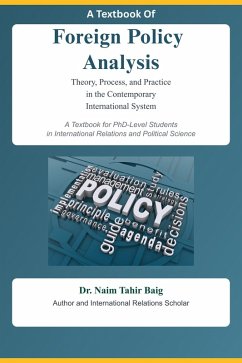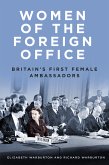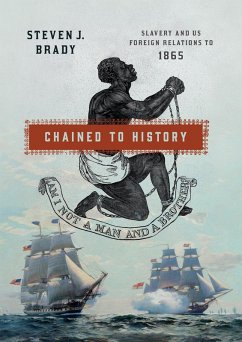Foreign Policy Analysis: Theory, Process, and Practice in the Contemporary International System offers a comprehensive and sophisticated examination of foreign policy decision-making in the modern world. Designed specifically for PhD-level students in International Relations and Political Science, this authoritative textbook bridges the gap between theoretical frameworks and real-world policy challenges, providing readers with the analytical tools necessary to understand and evaluate foreign policy processes across diverse political systems and cultural contexts.
The book systematically explores the evolution of foreign policy analysis as a distinct subfield of international relations, tracing its development from early diplomatic studies to contemporary multi-level analytical approaches. Dr. Naim Tahir Baig presents a critical synthesis of major theoretical paradigms, including rational choice models, bureaucratic politics, psychological approaches, and constructivist perspectives, while demonstrating their application to contemporary foreign policy challenges. The text examines how domestic politics, international structures, individual psychology, and organizational dynamics interact to shape foreign policy outcomes in an increasingly complex global environment.
What distinguishes this work is its emphasis on the practical dimensions of foreign policy analysis, incorporating extensive case studies from multiple regions and political systems. The book addresses contemporary challenges such as the impact of digital technology on diplomacy, the role of non-state actors in foreign policy processes, the implications of shifting global power structures, and the continuing relevance of traditional security concerns in an interconnected world. Special attention is given to understanding foreign policy-making in non-Western contexts, providing a truly global perspective on the discipline.
The textbook is structured to facilitate both comprehensive understanding and practical application, featuring detailed theoretical discussions complemented by empirical evidence and analytical exercises. Each chapter includes contemporary examples, methodological considerations, and suggestions for further research, making it an invaluable resource for advanced students conducting original research in foreign policy analysis. The work concludes with forward-looking discussions on emerging trends and future directions in the field, preparing students to contribute meaningfully to both academic discourse and policy debates in the 21st century.
Dieser Download kann aus rechtlichen Gründen nur mit Rechnungsadresse in A, B, CY, CZ, D, DK, EW, E, FIN, F, GR, H, IRL, I, LT, L, LR, M, NL, PL, P, R, S, SLO, SK ausgeliefert werden.









